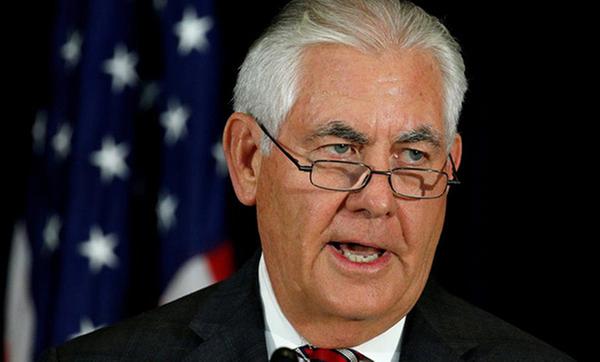Tillerson's rational overture

 |
| US Secretary of State Rex Tillerson speaks during a press conference after talks with Chinese diplomatic and defense chiefs at the State Department in Washington, US, June 21, 2017. [Photo/Agencies] |
As if to cover up their own helplessness on the issue, some countries have demonstrated a renewed penchant for pointing an accusing finger at China, alleging that China has not put enough pressure on the Democratic People's Republic of Korea to rein in its nuclear weapons program.
As well as provoking a new round of vehement criticism and condemnation from the international community, the test-launch of a second intercontinental ballistic missile by the DPRK on Friday prompted Washington to once again claim Beijing is not exercising the influence it has over Pyongyang.
US President Donald Trump tweeted after the launch that he was "very disappointed" with China and Beijing was doing "nothing" to curb Pyongyang's nuclear ambitions.
Such accusations are unfair, as they are totally unfounded. China is doing all it can and employing whatever influence it has. It has consistently and fully implemented UN Security Council resolutions, and repeatedly urged the DPRK to respect the collective will of the international community and cease any activities that escalate tensions.
Trump's implication that Beijing is somehow at fault for the US' current unease is simply a reflection of what has been his administration's inaccurate assessment of the situation.
Which is why US Secretary of State Rex Tillerson's latest remarks on the issue are so welcome; they suggest the US has adopted a more rational perspective.
At a US State Department briefing on Monday, Tillerson said the US does not blame China for the escalating tensions and the US is willing to sit down and negotiate with the DPRK over its nuclear weapons program in coordination with China.
Tillerson's remarks hopefully signal Washington has adopted a more pragmatic approach to the issue and it is willing to engage in dialogue with Pyongyang in a bid to break the current impasse.
No stakeholder can single-handedly resolve the Korean Peninsula issue. But instead of concerted efforts to defuse the volatile tensions on the peninsula, the finger-pointing has merely highlighted the growing divergences among stakeholders on how to resolve the issue, which has threatened to prompt reckless moves that would exacerbate the already fragile situation.
It is hoped the US will now make concrete moves to translate Tillerson's words into action, and the DPRK will demonstrate its own sincerity to de-escalating tensions.

































